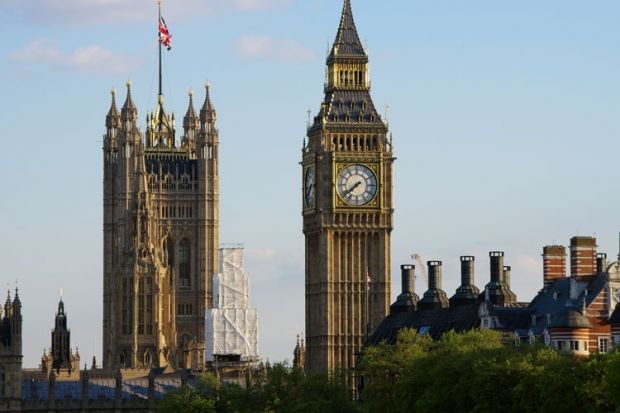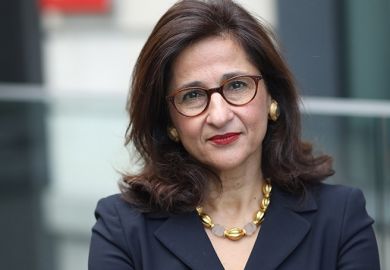The group of vice-chancellors and chancellors write in a letter to The Times, published today, that the government “does not appear to have considered how the bill will relate to universities’ existing duties and codes of practice concerning freedom of speech and academic freedom”.
Signatories include Craig Calhoun, director of the London School of Economics; Dame Julia Goodfellow, vice-chancellor of the University of Kent and president-elect of Universities UK; Anthony Forster, vice-chancellor of the University of Essex; and Shami Chakrabarti, Essex chancellor and director of Liberty.
The government’s Counter-Terrorism and Security Bill, being debated in the House of Lords this week, would give the home secretary the ultimate authority to take legal action to force universities to ban “extremist” speakers from campus if they consistently failed to tackle concerns.
The bill puts a duty on specified public authorities, including universities, to “have due regard, in the exercise of its functions, to the need to prevent people from being drawn into terrorism”.
The signatories to the letter say that they are “profoundly concerned about the consequences for UK universities”, noting that universities are “already supporting the government’s Prevent Strategy to counter terrorism and radicalisation” through existing obligations.
They add: “Universities are at their most effective in preventing radicalisation by ensuring that academics and students are free to question and test received wisdom within the law. The bill is not the best means of maximising the contribution universities can make, and may indeed be counterproductive, causing mistrust and alienation.”
And they continue: “To be truly effective in countering terrorism and radicalisation, universities must continue to be independent from government. The new statutory duty should not apply to universities and they should be exempt, as proposed for the security services and judicial bodies.
“This would safeguard the unique status of universities as places where lawful ideas can be voiced and debated without fear of reprisal.”
Register to continue
Why register?
- Registration is free and only takes a moment
- Once registered, you can read 3 articles a month
- Sign up for our newsletter
Subscribe
Or subscribe for unlimited access to:
- Unlimited access to news, views, insights & reviews
- Digital editions
- Digital access to THE’s university and college rankings analysis
Already registered or a current subscriber? Login




